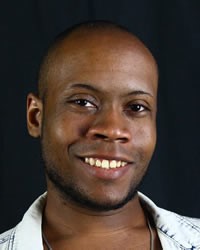Black African, general in Argentina

Photo Source:
Michael Mapes - Pixabay
|
Send Joshua Project a map of this people group.
|
| People Name: | Black African, general |
| Country: | Argentina |
| 10/40 Window: | No |
| Population: | 16,000 |
| World Population: | 1,154,700 |
| Primary Language: | Spanish |
| Primary Religion: | Christianity |
| Christian Adherents: | 75.00 % |
| Evangelicals: | 6.00 % |
| Scripture: | Complete Bible |
| Ministry Resources: | Yes |
| Jesus Film: | Yes |
| Audio Recordings: | Yes |
| People Cluster: | Sub-Saharan African, general |
| Affinity Bloc: | Sub-Saharan Peoples |
| Progress Level: |
|
Introduction / History
In some cases, we can refer to a particular language or ethnic group among Black Africans in various parts of the world. In other cases, we have to generalize and call them “Black Africans.” This is often the case for those who have lost their culture, especially those whose ancestors came as slaves. This is common in Argentina. Others came to the host country as refugees of violence, or sometimes as students or businesspeople.
What Are Their Lives Like?
Those whose ancestors were forcibly brought as slaves are usually integrated into the local culture. They speak the language of the dominant people. In the case of Argentina, that language would be Spanish .
Others come to Argentina as students or businesspeople. Africans with higher education and business abilities usually thrive in Europe and the Americas.
What Are Their Beliefs?
Black Africans in diaspora are usually Christian, or they at least have access to the gospel. The one exception is Tunisia.
What Are Their Needs?
Black Africans who flee as refugees have to deal with emotional and physical trauma. Students and businesspeople need the spiritual hunger it takes to prioritize Jesus in their lives.
Prayer Points
Pray for the Holy Spirit to move powerfully in Black African families in Argentina, drawing them closer to the Lord of lords.
Pray that soon the Christians among them will take Christ to those who don't share their faith.
Pray for the Lord to help them adjust and thrive in their new homeland.